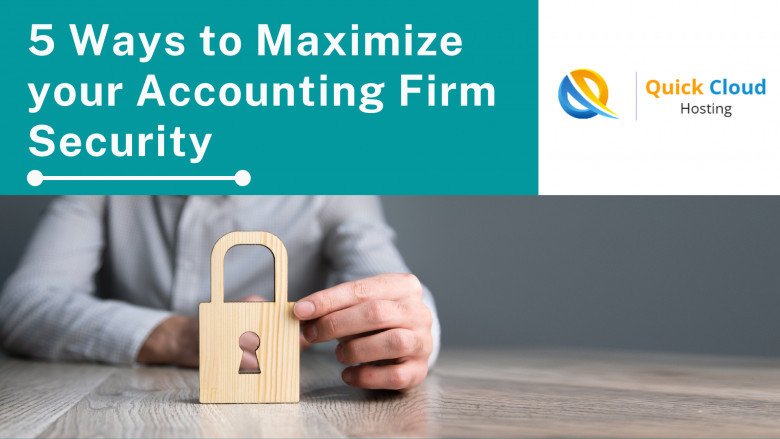views
5 ways you can improve the security of your accounting firm
When it comes to data security, don't make the mistake of assuming that your QuickBooks hosting provider's security measures will be enough. Even the best security systems can't protect data once it leaves the cloud. That's why it's important for organizations to have their own security measures in place to protect data both in the cloud and outside of it.

While it's true that data is more vulnerable when it's stored on the cloud—because devices can be compromised, wi-fi connections can be insecure, and log-in information can be stolen—there are still ways to keep your data safe. One way to do this is to encrypt your data before storing it on the cloud. This way, even if someone does get access to your data, they won't be able to read it.
-
Create Hybrid environments
The use of cloud operations has become nearly ubiquitous in the business world. According to Right Scale, 91 percent of businesses used a public cloud in 2019. Out of these firms, 69 percent opted for a hybrid cloud solution that combines private and public cloud usage. For many organizations, the cloud has become an integral part of their operation.
Businesses are increasingly choosing hybrid cloud solutions to manage costs and meet security needs. With a hybrid cloud solution, businesses can place mission-critical data on a private cloud that is secured by the QuickBooks cloud hosting service provider. Less sensitive information can be placed on public cloud servers.
-
Avoid being collateral damage
When you're entrusting your business' data to a cloud service provider, you need to do your due diligence to ensure that their infrastructure is up to snuff. This means understanding what security measures they have in place, as well as being aware of the fact that if you're sharing a platform with other businesses, you may be more susceptible to network outages or impaired performance. Not to mention, an increased risk of cyber-attacks.
Talk to your cloud service provider about your options for secure, private clouds. See if they offer competitive prices for your company's software and applications.
-
Use detection capabilities
No one likes to think about what could happen if their company got hacked, but the truth is that the costs of a security breach are much higher than the cost of taking measures to prevent attacks. In the short term, your company will have to pay for IT repairs, upgrades, and legal expenses. In the long term, you could lose your customers’ trust and business. By investing in security now, you can save your company a lot of money and headaches in the future.
As such, it becomes essential that you routinely test your system’s defenses and implement detection capabilities that can give you enough time to assess the attack and determine the correct response. For instance, in the event of a volumetric attack, rather than going for an immediate response, you may opt for cloud scrubbing, which would give you more time to investigate the situation and mount a stronger defense.
-
Provide anti phishing training
According to reports, 32 percent of data breaches in 2020 were caused by phishing attempts. Attackers are now going to greater lengths to pose as legitimate institutions, which suggest that phishing attempts are becoming more sophisticated.
Phishing scams are on the rise, and businesses need to be prepared. Employees should be trained to recognize the tell-tale signs of phishing emails, calls, and text messages. They should also be aware of how to keep their devices secure. By being proactive and educating employees on how to spot a phishing scam, businesses can protect themselves from becoming victims.
-
Get a comprehensive off boarding process
When employees leave your company, it's vital that you revoke their access rights in a timely fashion. If small businesses neglect this step, they put their customers' information, intellectual property, and business data at risk. Having a standard off-boarding process in place will help to delineate tasks and responsibilities, and prevent any delays in the process. This, in turn, will help to protect your sensitive information.











